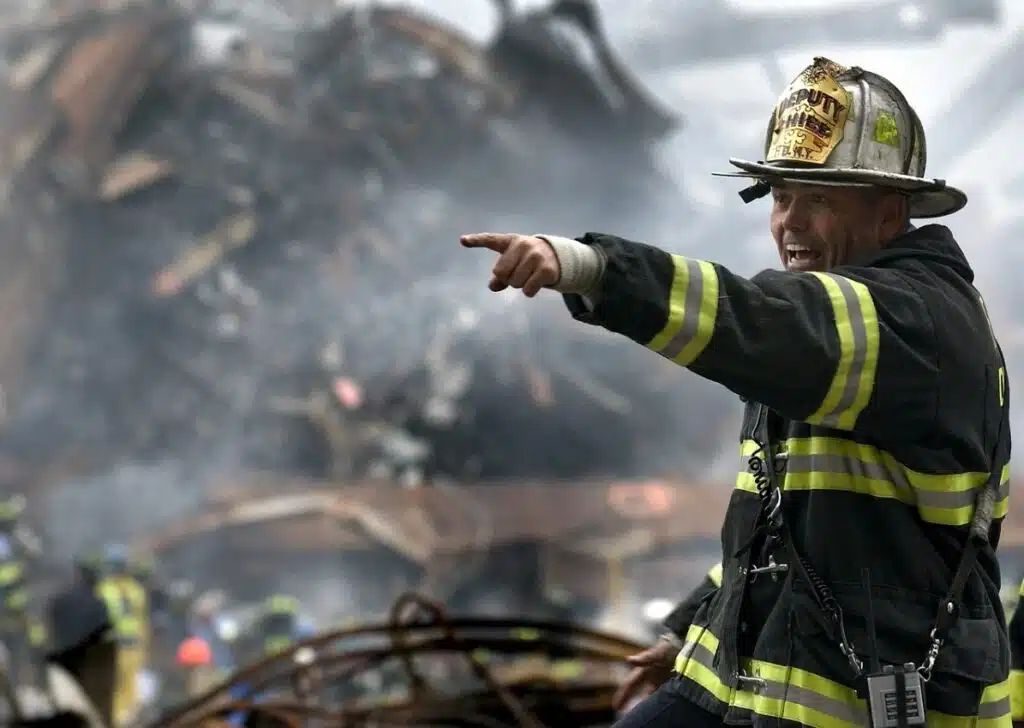Shortly after the September 11 attacks, the U.S. Congress created the September 11 Victims Compensation Fund (VCF) to provide financial aid to the victims and their families. Throughout its original three-year run from 2001 to 2004, it has awarded USD$7 billion to nearly all the eligible applicants.
However, as first responders began suffering from health problems after operating at Ground Zero, the government restarted the VCF in 2011 under the James Zadroga 9/11 Health and Compensation Act. The namesake, NYPD police officer James Zadroga, succumbed to health problems linked to dust exposure from the Twin Towers’ collapse five years before the Act was passed.
Then, as one of his last acts as POTUS, Donald Trump signed HR 1327 into law, making the VCF permanent and extending the deadline for filing claims to October 1, 2090. This means that the VCF would receive continued federal funding, which wasn’t the case during its original run.
If you or someone you know is a first responder who has been suffering from health problems linked to the 9/11 attack, they may be eligible for VCF. Below are a few things to know about filing a VCF claim.

Verify The Source Of Your Illness
The first step is to verify if your current illness is a direct cause of the toxic exposure at Ground Zero, either during the attack or in the aftermath. In this case, the VCF follows the World Trade Center Health Program guidelines (where applicants must register first before filing a claim). The qualifying illnesses are as follows:
- Acute traumatic injuries (e.g., burns, physical trauma, fractures)
- Aerodigestive disorders (e.g., asthma, and other respiratory diseases)
- Cancer (the VCF recognizes more than 70 types)
- Mental health conditions (e.g., depression, PTSD)
- Musculoskeletal disorders (only applicable to first responders)
If the applicant has cancer and is below 20 years old, the VCF will qualify them regardless of the type. As for first responders with musculoskeletal disorders, the fund only qualifies those who sustained injuries onsite and received treatment before September 11, 2003. A program doctor will determine whether or not your health condition is eligible.
Remember Your Deadlines
Whereas October 1, 2090, is the end date for all VCF claim filing, July 29, 2021, is for registration. But unlike the filing deadline, the registration deadline differs from person to person. In this case, the date only applies to those whose conditions have been certified as eligible by the WTC Health Program.
If you’re not certified yet, you don’t need to register by July 29. However, you still need to do so within two years of your condition being certified. Likewise, both situations apply for people signing up on behalf of the affected individuals. Also, keep in mind that registering for the WTC Health Program is different from the one for VCF.
Complete Your Documents
Once you’re certified, create a new account on the VCF Claims page (or log in if you already have one) and follow the instructions, which include providing the proper documents. To start, the VCF needs at least these four documents to begin processing your claim:
- A duly signed authorization for the release of medical records
- A proof of presence at any of the three 9/11 crash sites (i.e., affidavits, employer records) that proves the applicant was there anytime from September 11, 2001, to May 30, 2002
- Any document proving that the medical condition stemmed from the 9/11 event (not required if the applicant is already being treated under the WTC Health Program)
- Lawsuit documents related to the 9/11 attacks (if any)
However, these four are only the tip of the iceberg. The attacks had distressed Americans and their families in various ways, hence there may be requirements for additional documentation to prove said distress. Here are some examples:
- Social Security Administration Consent Form for claiming loss of past and future income
- A court order or Letter of Administration for filing claims on a qualified individual’s behalf
- Certified death certificate (if applicable)
- Guardianship documents for qualified individuals aged 18 and below

Secure A Reliable Legal Service
As you’ve probably noticed by now, there’s a lot of work involved when you file a VCF claim. Complicating matters is the fact that not everyone will be doing the filing themselves, as they’re either long gone, or no longer healthy enough to do so. This is why you’ll most likely need a lawyer specializing in VCF claims to help you navigate the lengthy process, especially with securing the proper documents.
Conclusion
With the deadline extended by 70 years, people who previously had no clue about the existence of the VCF can catch up. But they need to move fast as the window for registration is quickly closing. While no amount of money can turn back the clock and prevent the tragedy, it can help ease the burden of the victims who are trying to resume a normal life.
